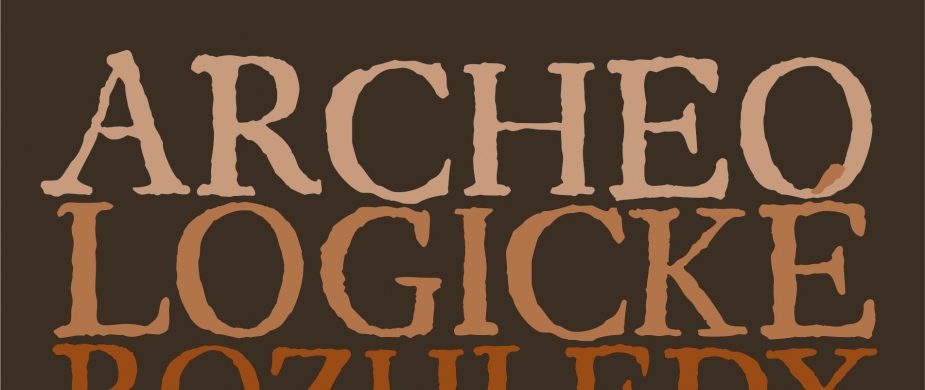New editor-in-chief of Archeologické rozhledy and news for authors
We announce that Václav Vondrovský has been appointed the new editor-in-chief of the Archeologické rozhledy journal, starting his service on January 31st. The Institute of Archaeology would like to express its gratitude and acknowledgements to the previous editor-in-chief Martin Ježek for his outstanding service. He has led Archeologické rozhledy since 2000. Thanks to his long-time effort, the journal, one of the oldest archaeological journals in the Czech Republic, is covered by international databases like WOS, SCOPUS, ERIH PLUS and many others.
We are also introducing a new website and editorial system for the journal, where new papers can be submitted. We ask prospective authors to prepare their submissions in alignment with new author guidelines. You can also follow Archeologické rozhledy on Facebook and Twitter.
Václav Vondrovský gained a PhD in Archaeology from the University of South Bohemia. He joined the Institute of Archaeology of the CAS in Prague as Doctoral Researcher in 2018, continuing as Postdoctoral Researcher since 2021. Prior to this, he got involved in museum archaeology for three years. Already during his early studies, he has been engaged in several research projects, and since 2021, he has been a principal investigator of a project studying first farmers in South Bohemia. His main research interests are the European Neolithic, particularly the Linear Pottery and post-LBK periods, and radiocarbon dating.
Archeologické rozhledy is an Open Access peer-reviewed journal published since 1949 by the Institute of Archaeology of the Czech Academy of Sciences in Prague. In four issues per year, it presents original archaeological research, topical reviews, debates, and reviews of new archaeological literature. Papers are published in English, Czech and Slovak.
Archeologické rozhledy aims to present a wide range of original archaeological research focused on Central Europe or with relevance for archaeology in this area. Published articles cover the full spectrum of topics regardless of chronological period or methodological approach. The journal welcomes reports on significant archaeological discoveries set into a broader context, interdisciplinary and science-based research, as well as discussions and reviews that reconsider key issues of Central European archaeology.

